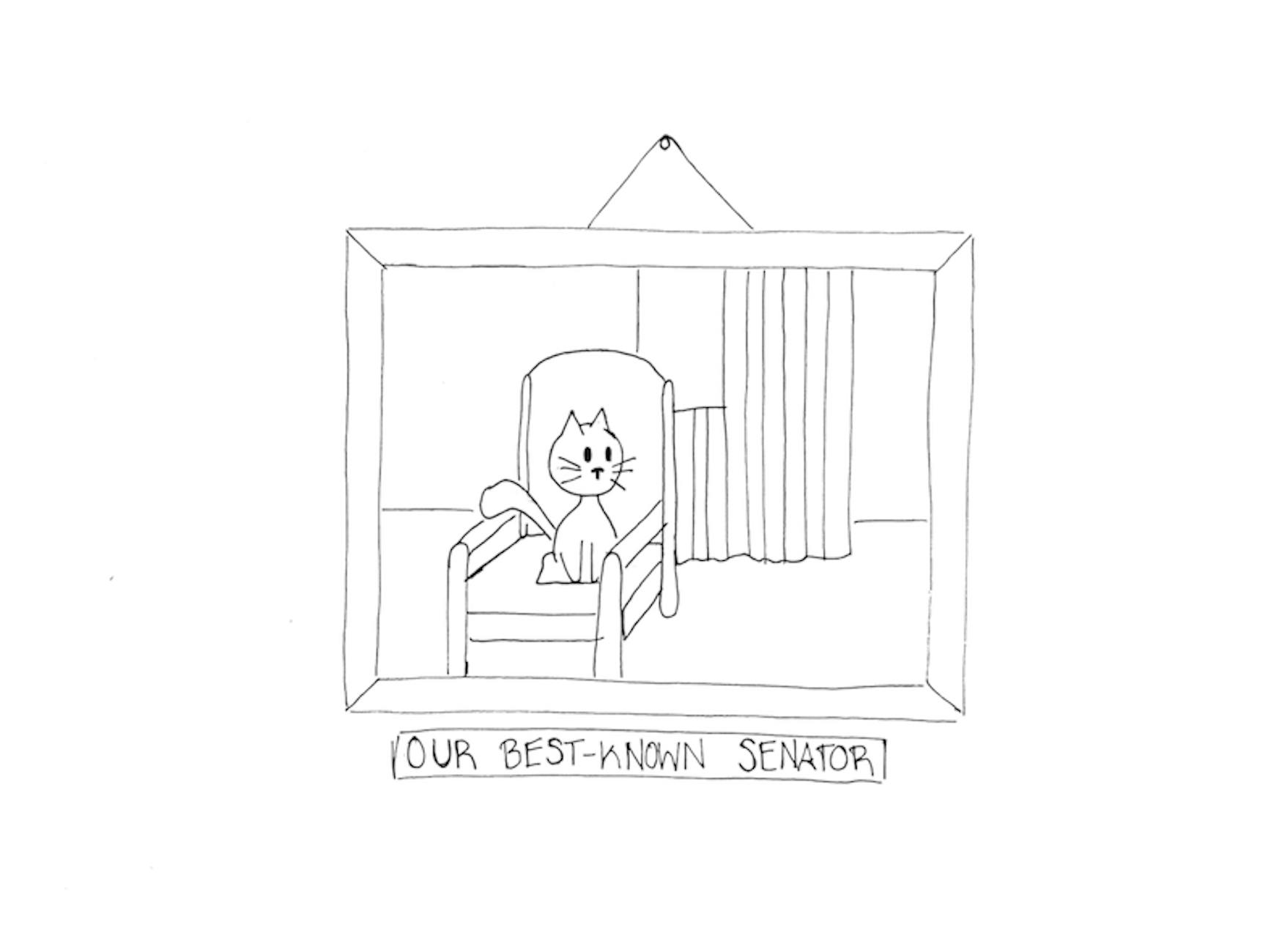EDITORIAL: Support Student Union representation efforts
On Thursday, students will vote on their new Student Union Senators and representatives, and the future senators-elect may find a very different Union awaiting them: At last week’s Senate meeting, Student Union President Nyah Macklin ’16 expressed her wish to expand the impact of the Student Union and the Senate. Recently the Senate’s role as an intermediary between students and administrators has been lacking, and Senate activity has primarily focused on chartering and recognizing new clubs, as was expressed by members of the Student Union themselves at the meeting. Macklin told the Justice in an interview this week that one of her goals as president is communication with the student body about Union activities.
This Board is pleased with the self-reflective eye that Macklin and the Student Union have turned on themselves and wants to emphasize that the road to a Union operating as a truly representative and governing body is a two-way street. The ideas articulated at the meeting and by Macklin require a clear strategy to garner the respect of the student body and a meaningful voice with the administration, but their most ambitious and well-executed plans for a reimagined student government will fail unless students come forward with their specific grievances.
Macklin and other Senators acknowledged a few of the key changes they want to enact in order to transform into an organization students can feel confident coming to with their concerns. In an interview with the Justice, Macklin stated that she thinks communication will be greatly improved by replacing the Union’s outdated website with a new one this year. Another point raised by Senator David Herbstritt ’17 was for heavily advertised “productive and accountable office hours,” and a more serious learning component about Senate procedure at the annual Senate retreat.
These initiatives all point to a renewed effort for communication, transparency and issue-focused action by the Union. This is what the student government was created to do, and for this we commend them.If representatives are better known and their initiatives better publicized, students will be inclined to approach them.
A prime example of the dysfunctional relationship between senators and students last year was when residents of the Foster Mods elected a neighborhood cat as their senator, commonly referred to as “Mod Cat.”
This satirical choice signals the apathy students feel toward their government, but such apathy itself contributes to Union ineffectiveness in a vicious cycle: the less effective the Union is, the less students use it to address their concerns. The less students use the Union to address their concerns, though, the less effective it becomes.
There are instances of the Student Union living up to its potential in recent memory. Through the Senate Dining Committee’s Facebook page created last fall, students were given a central location to voice their discontent. This lead to dining roundtables.
There is no better time than the beginning of a year to set new precedents and lay down the groundwork for a more efficient and productive Student Union, and we hope that these goals are met.



Please note All comments are eligible for publication in The Justice.